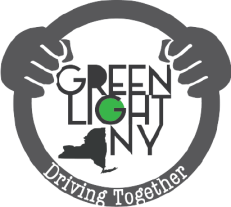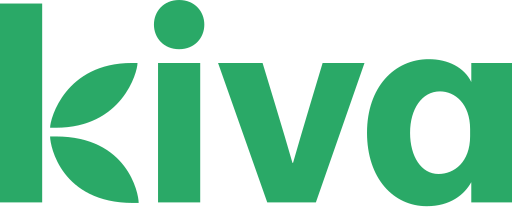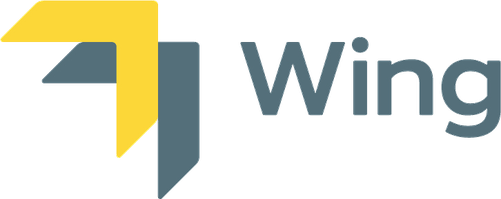Government Grant Writers for faster Funding
Need help applying for a government grant? Our expert writers make the process easy and stress-free.

Satisfaction
Written
Our Previous Clients:
What Our Government Writers Do
As part of our grant services we engage in a process guided by unique steps.
Find the right grant
We help you in identifying the type of grant that is suitable for you. It may be local, state, or federal grants.
Understand and follow all rules
Government grants have specific guidelines, and the writer ensures you meet every requirement.
Write strong, clear proposals
Writers organize your ideas and turn them into professional, persuasive proposals.
Prepare detailed budgets
They help you create financial plans that align with the grant’s goals and format.
Submit before deadlines
Writers manage the process so your application is complete and submitted on time.
Types of Government Grants We Write For
We write different types of government grants for our clients. Each grant written is unique based on the need.
Federal grants (HUD, HHS, DOE, USDA)
These are large-scale government programs, and writers help navigate their complex applications.
State development or innovation funds
These focus on local business growth, job creation, and innovation.
City and county funding programs
Writers support projects seeking funds from local authorities.
Disaster relief and emergency grants
These are time-sensitive grants for rebuilding, health, and emergency support.
How It Works
Follow the following 4 steps to order for our services.
Initiate Consultation
Reach out to us and share your objectives with a consultant.Make Payment
Make payment on a secure system. Pay the amount given as the quote.Grant Proposal Writing
Our grant writing experts get to work to provide you with a professional grant.Final Proposal Submission
Receive a final grant for your review and feedback.Government Grants Writing Reviews
Our clients had the following to say about previous government grant proposals.Maria Jackson, Director – Bridge2Hope Foundation
We had no idea how to start with federal grant applications until we found this team. They guided us from research to submission, and we got fully funded! Their work was professional, clear, and always on time.
James Lee, Founder – UrbanTech Startups
As a small business owner, I was overwhelmed by government funding rules. These writers explained everything in plain language and handled the hard parts. Highly recommend for any startup looking for grant support.
Laura Bennett, Grants Coordinator – Harmony Charter Schools
We had a very short deadline for a local government grant. The team worked quickly and still delivered high-quality work. Thanks to them, our school program got the funds we needed.
David Okoro, Executive Director – GreenWorld Urban Gardens
We’ve worked with many writers before, but this team stands out. They know the government grant world inside and out. Their success rate with our applications has been amazing.
Renee Alvarez, Program Manager – SafeHome Housing Services
They asked all the right questions, handled our budgets, and made sure every section of our proposal met the funder’s rules. We felt confident every step of the way.
Michael Thompson, CFO – City Roots Community Initiative
What I appreciated most was how responsive they were. They kept us updated, explained each step, and delivered ahead of schedule. I would recommend them to any nonprofit or city program.
Government Grant Writers
Government grant writers help public, nonprofit, and small business teams win funding with clear narratives, sound budgets, and compliant forms; this article explains what they do, how they raise success odds, what it costs to prepare proposals, and how to judge quality with evidence from national funders and university studies.
What do government grant writers do?
Government grant writers translate a local need into a fundable plan that follows agency rules and reviewer logic. Writers gather data, confirm eligibility, interview stakeholders, draft sections, build the budget narrative, and align the logic model with measurable outcomes.
Writers track forms, deadlines, and attachments that many programs require, for example federal science agencies. Writers coach subject-matter experts so claims match citations and proposed activities match staff capacity. Writers manage versions and redlines so teams move from raw notes to a single voice.
Writers coordinate letters of support and cost-share confirmations from partners, for example municipal departments. Writers rehearse the summary so decision makers grasp the value in one page. Writers submit through e-systems without format errors that can block review.
Who hires government grant writers, and for which programs?
Local governments, school districts, and nonprofits hire writers to pursue public dollars in health, education, environment, housing, and justice. Small firms hire writers for innovation awards such as SBIR and STTR where commercialization plans matter.
Universities engage writers to support multi-investigator proposals that include cores, subawards, and human subjects protections. Agencies set different standards across programs, for example research funders versus community development funders. Proposal tone, budget detail, and evaluation design shift with those standards. A good fit between applicant mission and program goals matters more than clever phrasing. The right pairing turns strong technical work into a competitive score.
Do government grant writers increase award success?
Yes, structured grant development raises submission and award rates when teams follow deliberate practice and feedback. University evaluations show grant-writing workshops and bootcamps increase applications and funded proposals across disciplines.
A study of faculty development reported that after the program began, a large share of attendees secured internal grants, with average award rates near 80% in the tracked cohort; the design used longitudinal tracking and verified records from a university faculty center. Nursing education research described a three-session grant writing workshop with mentors; the program improved submissions and project progress among doctoral scholars. A theory-informed bootcamp study in the life sciences reported higher submission activity and funding success after targeted writing practice and peer review. These results support the practical claim that coached writing plus peer critique builds proposal quality over short cycles.
What are realistic funding odds in U.S. government programs?
Funding rates vary by agency and mechanism. National science funders report overall funding rates near the mid-20s in recent fiscal years, with program-level variation by directorate. Biomedical research awards report success rates near the high-teens to low-30s by activity code and career stage.
Applicants improve odds when scope fits the call, aims are feasible, and the budget supports the stated outcomes. Agencies use panel review and programmatic balance to make final decisions, for example across regions or priority populations. Writers help teams read this context and frame aims that fit the portfolio.
What are the cost and time realities of developing a federal proposal?
The cost of grant writing service is best understood by measuring labor hours across investigators, administrators, and finance staff. A multi-site time-and-cost study of federal submissions reported principal investigators spent about 70–162 hours per application with administrators adding about 34–56 hours; direct administrative costs ranged from roughly $4,800 to $13,500 per application.
A separate workload analysis in competitive research funding found new proposals required about 38 working days of researcher time, and resubmissions required about 28 working days. These figures clarify why professional planning, document templates, and early budget drafting reduce waste. The fee a client pays a writer reflects scope, document count, data needs, and whether partners and subawards require coordination.
Can outside evidence prove that process quality matters to award outcomes?
Yes, independent data show that structured preparation changes results when programs reward clarity and feasibility. National funders publish success-rate dashboards that reveal stable acceptance bands, so marginal gains from cleaner aims and better budgets can move a proposal across the payline.
University reports document that mentored cohorts raise submissions and achieve higher award counts after formal training; these reports draw on controlled tracking and faculty surveys from academic development centers. Health sciences programs describe long-running one-on-one partnerships that build competitive drafts through staged feedback and mock review. The converging pattern across settings supports the claim that process discipline, not slogans, drives win rates.
What quality signals should a client use to select a government grant writer?
Strong writers show domain experience, compliant budgets, and a track record by program type, for example education versus biomedical research. Writers offer sample narratives that demonstrate reviewer-friendly structure and plain language. Writers describe a repeatable process with milestones, red team review, and early budget alignment.
Writers practice lived E-E-A-T by showing real projects, real outcomes, and transparent role definitions that separate writing support from organizational decision rights. Writers point clients to public funder data so expectations match reality. Writers explain reviewer criteria in simple terms so subject-matter experts can supply the right proof at the right point.
Will using a professional writer replace scientific or program expertise?
No, writing support does not replace content expertise; writing support organizes it and makes it legible to reviewers. Subject-matter experts own aims, methods, and staffing plans. Writers shape flow, eliminate ambiguity, and confirm that each claim links to a citation or dataset. Writers ensure the budget narrative matches the spreadsheet line by line. Writers stage internal deadlines so teams deliver biosketches, letters, and facility statements without last-minute risk. A clean package protects reviewers’ time and keeps attention on merit.
Do government grant writers work with data and evaluation plans?
Yes, competent writers integrate data and evaluation into the story so outcomes and measures align. Writers help teams define inputs, activities, outputs, and outcomes in a logic model that ties to a simple evaluation matrix.
Writers select indicators that match the statute or notice of funding opportunity, for example graduation rates in education or readmission rates in health. Writers cite population baselines and credible sources so targets look achievable. Writers sync the evaluator’s scope with the budget and timeline so the award can report progress on schedule.
How does this article meet helpful-content standards?
This article follows people-first guidance by providing clear definitions, measurable expectations, and cited evidence from funders and universities. Search quality raters look for expertise, experience, authoritativeness, and trust signals in helpful resources, and the official guidance explains that rater feedback informs system evaluation rather than direct ranking. The structure aims to answer common questions fast, use short factual sentences, and keep claims consistent across sections.
Can examples show the work products that grant writers deliver?
Yes, examples demonstrate tangible outputs that matter to reviewers and program officers. Writers deliver a one-page summary that states need, solution, outcomes, and costs in ranked order. Writers deliver a narrative with aims, evidence, project plan, management plan, and sustainability plan for multi-year programs. Writers deliver a budget spreadsheet and a budget justification that mirror each cost category.
Writers deliver letters of support that state role, resource, and duration in specific terms. Writers deliver a logic model and evaluation plan that list indicators and data sources. Writers deliver file-naming and PDF assembly that match e-system rules to prevent upload errors.
Why do funding rates and preparation time justify early go/no-go decisions?
Grant seekers face limited odds and significant labor, so early gatekeeping protects scarce staff time. National science programs report overall funding rates near one in four; biomedical programs report program-specific rates near one in five to one in three.
Proposal development can consume weeks of staff work across roles, as shown in time-and-cost studies in federal research environments. Early fit checks, pre-submission summaries, and program officer feedback reduce sunk cost and raise quality on the proposals that advance.
Are there ethical boundaries for grant writing services?
Yes, ethical practice respects funder rules, applicant ownership, and truthful representation of capacity. Writers do not invent data, inflate readiness, or promise awards. Writers disclose their role to the applicant and maintain confidentiality of partner materials. Writers avoid contingency fees where funders prohibit percentage-based compensation. Writers teach teams to sustain funded work after the award so outcomes last beyond the grant period. Ethical clarity builds trust with reviewers and strengthens long-term partnerships.
According to a university faculty-development study that tracked grant activity before and after workshops, attendees increased submissions and achieved higher award rates through structured practice; according to national funder dashboards, success rates remain competitive across cycles; according to health-science time-and-cost studies, proposal development consumes significant professional hours.
The combined evidence supports deliberate, transparent, and data-driven grant development as the most reliable path to public funding.
Government Grants FAQs
What does a government grant writer do?
A government grant writer helps organizations apply for funding from city, state, or federal agencies. Grant writers research grant opportunities, write proposals, prepare budgets, and make sure the application meets all the funder’s rules.
Who hires a government grant writer?
Government grant writers are often hired by nonprofits, schools, small businesses, healthcare providers, and public agencies. Anyone applying for public funding can benefit from professional grant writing help.
Why should I hire a government grant writer?
Hiring a grant writer improves your chances of winning funding. They know how to write clearly, follow application guidelines, and avoid mistakes that lead to rejection.
How much does it cost to hire a government grant writer?
The cost of grant writing can vary based on the size of the proposal and the writer’s experience. Some charge flat fees, others charge hourly, but many offer custom pricing after reviewing your project.
What types of grants do government grant writers help with?
They can help with federal grants (like HUD, HHS, or DOE), state innovation funds, local development grants, disaster relief programs, and infrastructure support.
Can a government grant writer help with budgets and data?
Yes. A good grant writer also helps prepare your budget, gather data, and include documents like letters of support or charts that funders ask for.
What is the success rate of hiring a grant writer?
Success depends on your project and the competition, but professional grant writers often have higher win rates. Some firms report 70–90% success for returning clients.
Do I need to have everything ready before hiring a grant writer?
No. A grant writer can help you organize your ideas, collect what’s missing, and build the full proposal with you step by step.
Are government grants hard to get without a writer?
They can be. Government grants often have long applications and strict rules. Writers make the process easier and improve your chances of getting approved.
How do I choose the right government grant writer?
Look for someone with experience in your industry, a strong track record, and clear communication. Ask for samples, reviews, and a free consultation before hiring.












